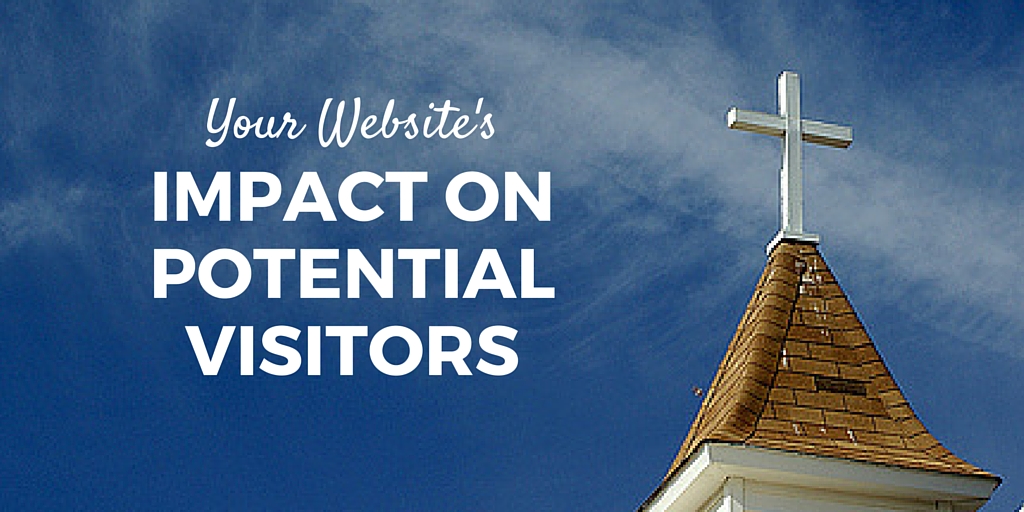Your Website's Impact on Potential Visitors
 I’ve listened to sports talk radio since before I was a teenager. Over the years, I’ve heard hundreds of callers identify themselves with a simple introduction: first-time caller, long-time listener (or the popular short-hand: “first-time, long-time”). Some listeners wait a decade before they decide to call. But when they finally reach for their phone, they already know what to do. They can recite the station’s phone number by heart because it’s been burned into their memory after hearing it countless times before. Long-time listeners become first-time callers because they feel called to take action. And taking action is really easy to do.
I’ve listened to sports talk radio since before I was a teenager. Over the years, I’ve heard hundreds of callers identify themselves with a simple introduction: first-time caller, long-time listener (or the popular short-hand: “first-time, long-time”). Some listeners wait a decade before they decide to call. But when they finally reach for their phone, they already know what to do. They can recite the station’s phone number by heart because it’s been burned into their memory after hearing it countless times before. Long-time listeners become first-time callers because they feel called to take action. And taking action is really easy to do.
Have you ever considered what people need to become first-time visitors in your church?
Without a doubt, they need a reason to participate (is it any wonder that the vast majority of visitors choose to attend because someone invited them?). But even a person who is highly motivated to visit still needs basic information in order to meet your congregation.
Like the location of where your church meets.
The Google era has diminished the importance of phone number jingles, but the importance of basic information has not changed. Various reports suggest that 90% of potential visitors will browse your church’s website before they decide to attend your worship service. Thom Rainer calls a church’s website their most overlooked outreach tool! If a person can’t find the time and location of your service within a few seconds of browsing your website, you can almost guarantee that you’ve lost a first-time visitor.
Church websites have been an easy target for criticism for as long as the Internet has been alive (and for good reason). The good news is that it doesn’t take much work on your website to help visitors find what they’re looking for. Here are a few suggestions on what to make prominent:
Church location. People need to know where to go. A simple address will do, but you can also include a map as long as you can make it look good on your site (chances are, visitors will choose to map your address on their own). I suggest including your location in a permanent block on your site so that people can see it no matter what subpage they’re looking at. If you want to really impress your guests, consider linking your address to a page that provides additional info such as parking suggestions (especially if parking is scarce) and building info (main entrance, ramp access, etc.).
Worship times (and length). The starting time is obvious enough (include it in a permanent block along with your location), but an added value is indicating when your service will end. This helps visitors plan the rest of their day (they’re likely thinking “Will I be there for three hours or one?) and also lessens the intimidation factor.
What to expect. This isn’t as essential as the first two, but having a separate page that addresses common curiosities is an inviting feature. Potential visitors will want to know the typical order of service so provide a sense for what they will experience. As you describe this, do your best to think like a visitor and respond to probable questions like:
- How should I dress?
- How long will the sermon be?
- Am I expected to give money?
- What should I do with my kids?
- Can I bring a coffee?
“About” page. Whatever you choose to call the page that describes your community, make sure that it helps visitors understand who you are and what you're about. A website’s about page is one of the first pages that I visit when I’m browsing a church’s website, but they are often outdated, clumsy, or full of churchy-language. When I see that a church lacks the capacity to update their most important information (or the creativity to describe themselves in ways that an unchurched person would understand), I assume they also lack the capacity to minister effectively. This might sound unfair, but research shows that people's perceptions of outdated websites is extremely negative (here's one example).
If you have other ideas of helping people become first-time visitors through a church website, please include a comment below.
- Keith Reed
